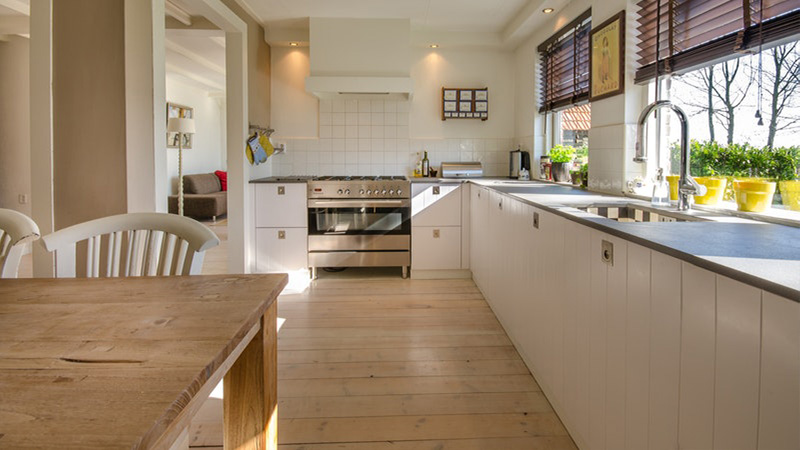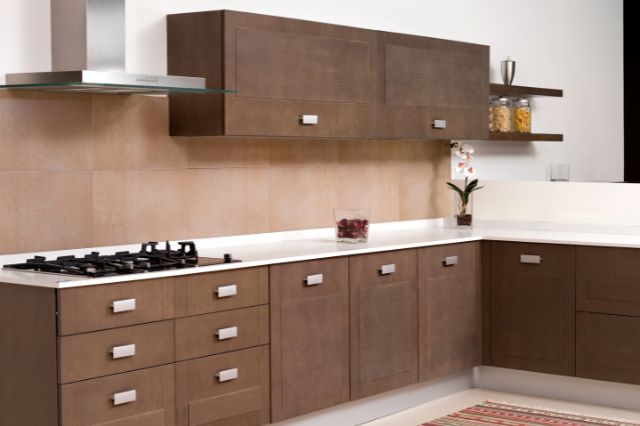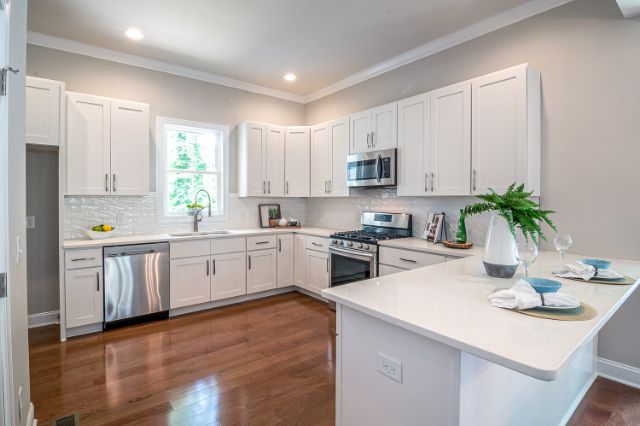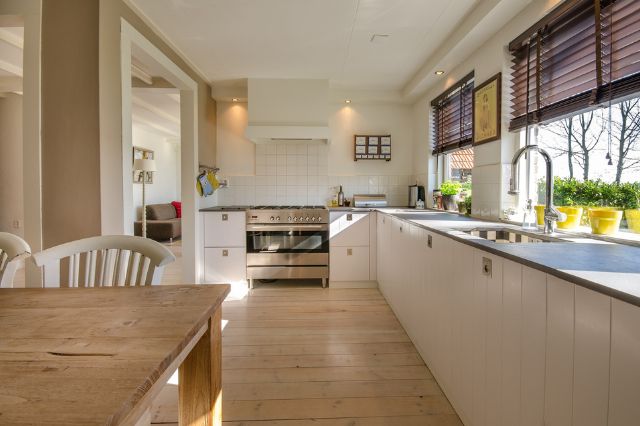Modular Kitchen
Best Modular Kitchen Interior Designers In Chennai
The modular kitchen concept refers to a design approach that utilizes pre-made cabinet units or modules to create a highly functional and customizable kitchen space. It involves the use of standardized components that can be easily assembled, disassembled, and rearranged according to individual needs and preferences.



Here are some key features and advantages of the modular kitchen concept:
Some of the primary benefits are listed below:

- Easy to install.
- Minimum hassle and planning required
- Can be built externally while other work is completed.
- Requires less on-site labor and expense.
- Can be customized to suit a variety of purposes.
- Fantastic for projects with a tight budget
- Reduces the overall project build time.
Why should one use a modular kitchen?
There are several reasons why one should consider using a modular kitchen:
Efficient Space Utilization:
Modular kitchens are designed to make the most of available space. The modular units, such as cabinets and drawers, are available in various sizes and configurations, allowing for optimal storage and organization. Clever storage solutions, such as pull-out baskets, corner units, and tall units, help maximize storage capacity, even in small kitchens.
Customization:
Modular kitchens offer a high degree of customization. You can choose from a wide range of modular units, finishes, materials, colors, and designs to suit your personal taste and specific requirements. This allows you to create a kitchen that reflects your style and accommodates your workflow and storage needs.
Flexibility and Versatility:
The modular nature of these kitchens allows for easy rearrangement and reconfiguration. You can modify the layout, add or remove modules, or upgrade specific components as your needs change over time. This flexibility is particularly beneficial if you plan to renovate or move to a new space in the future.
Aesthetic Appeal:
Modular kitchens offer a wide range of design options, allowing you to create a kitchen that suits your preferred style and enhances the overall aesthetics of your home. You can choose from various materials, finishes, colors, and accessories to create a visually appealing kitchen space.








Time and Cost Savings:
Modular kitchens are typically quicker to install compared to traditional custom-built kitchens. The pre-made modular units can be assembled and installed faster, reducing the overall installation time and labor costs. Additionally, the standardized production processes often result in cost savings compared to fully custom-built kitchens.
Ease of Maintenance:
Modular kitchens are designed for easy cleaning and maintenance. The individual modular units can be accessed separately, making it easier to clean and maintain the kitchen. If any component gets damaged, it can be replaced without affecting the entire kitchen setup.
Aesthetic Appeal:
Modular kitchens offer a wide range of design options, allowing you to create a kitchen that suits your preferred style and enhances the overall aesthetics of your home. You can choose from various materials, finishes, colors, and accessories to create a visually appealing kitchen space.
Increased Resale Value:
A well-designed modular kitchen can significantly enhance the value of your home. Potential buyers often look for modern and functional kitchens, and a modular kitchen can be an attractive selling point that sets your home apart from others.
Some of the Basics while Designing a Modular Kitchen
When designing a modular kitchen, there are several key aspects to consider. Here are some basic factors to keep in mind:
Layout and Workflow: Start by planning the layout of your modular kitchen to ensure an efficient workflow. Consider the classic kitchen work triangle, which connects the stove, sink, and refrigerator. This arrangement minimizes movement and makes cooking tasks more convenient. Design the layout to provide sufficient space for food preparation, cooking, washing, and storage.
Cabinet Placement: Determine the placement of cabinets based on your workflow and storage needs. Store frequently used items in easily accessible cabinets, while reserving higher or lower cabinets for less frequently used items. Place cabinets strategically to optimize space and ensure smooth movement within the kitchen.
Storage Solutions: Modular kitchens are known for their efficient storage options. Make use of different types of cabinets, drawers, and shelves to maximize storage space. Consider specialized storage solutions such as pull-out baskets, magic corners, spice racks, cutlery trays, and overhead storage units to keep your kitchen organized and clutter-free.
Countertop Space: Ensure you have ample countertop space for food preparation, placing appliances, and other kitchen tasks. It’s important to strike a balance between functionality and aesthetics. Consider the material and color of the countertop that best suits your needs and complements the overall kitchen design.
Lighting: Proper lighting is essential in a kitchen for both functionality and ambiance. Incorporate a mix of task lighting, ambient lighting, and accent lighting. Install task lights above work areas, such as the sink, stove, and countertop, to provide sufficient illumination for specific tasks. Use ambient and accent lighting to enhance the overall atmosphere and highlight specific features or areas.
Ventilation: Adequate ventilation is crucial in a kitchen to remove smoke, odors, and excess heat. Plan for a well-designed ventilation system, such as a range hood or an exhaust fan, to maintain good air quality and prevent the buildup of cooking fumes.
Electrical and Plumbing Considerations: Plan the placement of electrical outlets, switches, and plumbing fixtures such as sinks and taps. Ensure that the positioning of electrical and plumbing connections aligns with the design and layout of your modular kitchen. Consult with professionals to ensure compliance with safety regulations and to handle any electrical or plumbing modifications required.
Safety Measures: Consider safety aspects while designing your modular kitchen. Ensure that sharp edges and corners are minimized or properly covered to prevent accidents. Choose durable and heat-resistant materials for the countertops, backsplashes, and other surfaces.
Aesthetic Appeal: Pay attention to the overall aesthetic of your modular kitchen. Choose a color scheme, materials, and finishes that align with your personal style and complement the overall design of your home. Consider the balance between functionality and aesthetics to create a visually appealing and inviting kitchen space.
